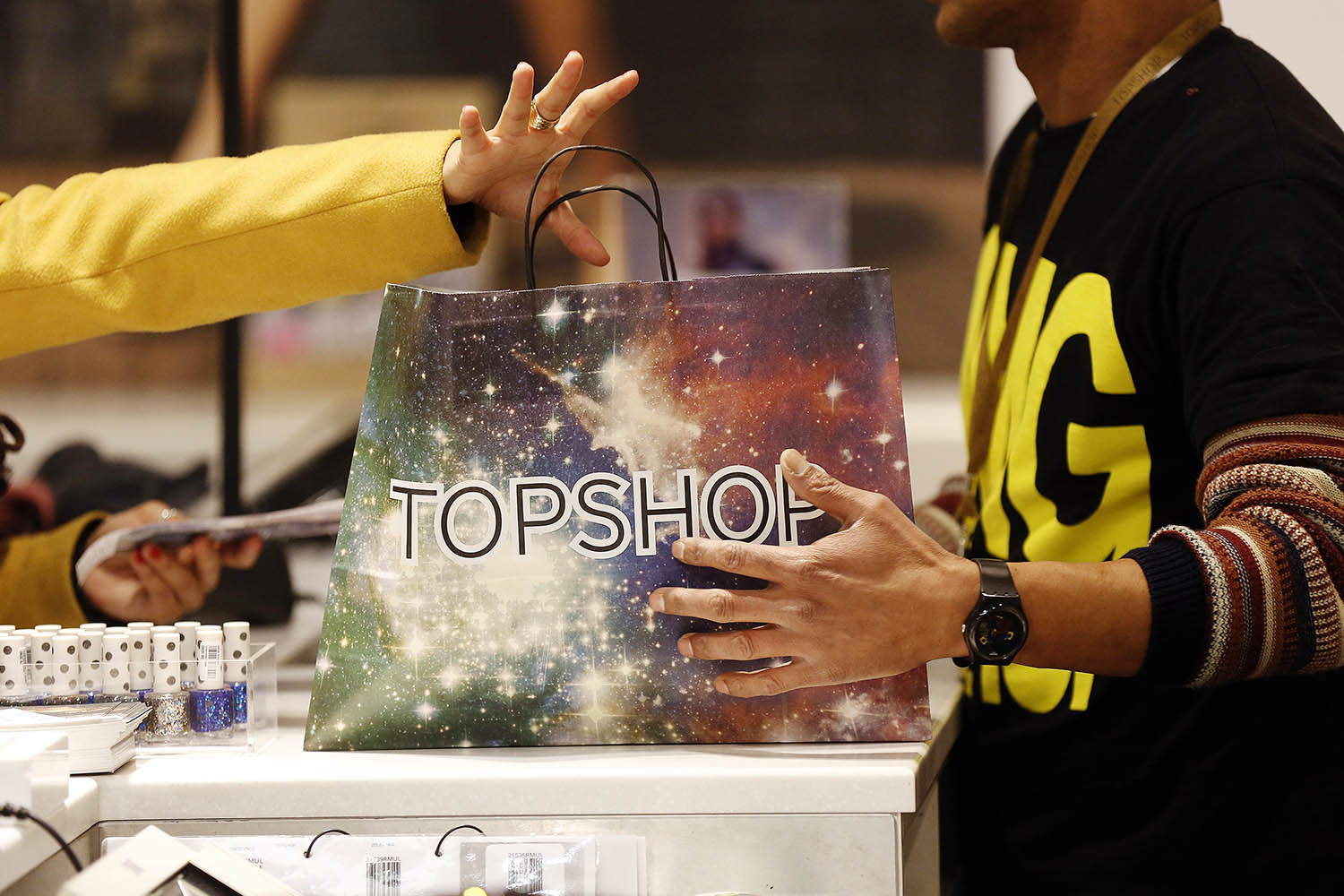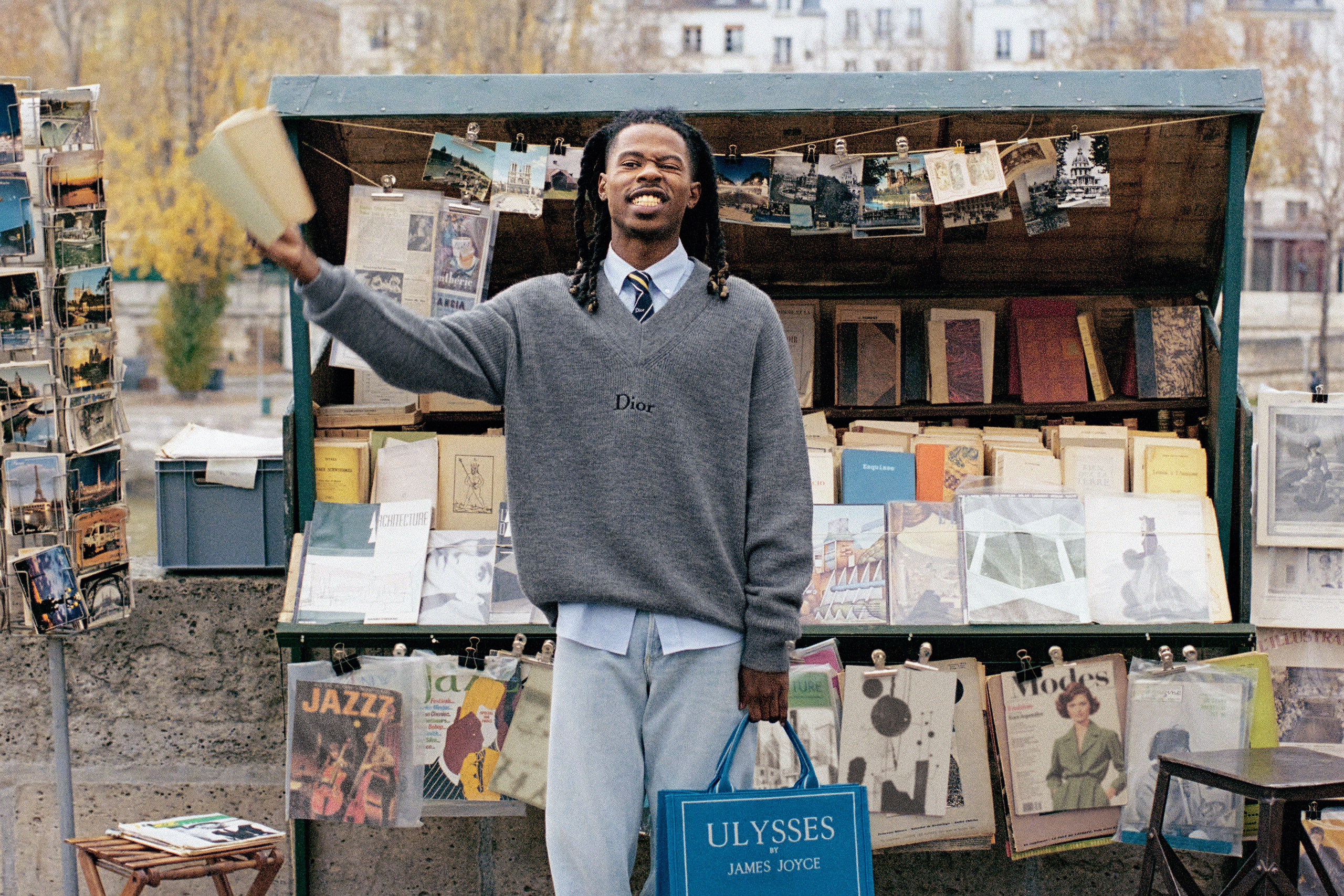There is a gaping void at the centre of my life and it’s called Topshop. A void, a maw, a grand and starving absence. When the big Topshop closed in 2021, I was unprepared for the hole it would leave. It was only shirts after all. Shirts, little tops, unfathomable dresses, illiterate shoes. It was only a shop. I don’t even like shops! I’m bad at shops! And yet as my daughter has grown older, 10 now and suddenly interested in shirts, little tops, in the grand art of getting dressed in order to create oneself, its loss has made itself known.
When it first closed, I loudly sighed at the fact that my chance to be spotted there as a “quirky” teenage model had been rudely snatched away. Now the real grief has set in, which is at the realisation that there is no equivalent place where my mum, my daughter and I could not just find something to wear that weekend, but also merrily spend an afternoon bickering among the sequins, holding hangers up against each other’s bodies as a question or a joke. Today those clothes are sold at a mark-up on eBay and Vinted, labelled, meanly, “vintage”.
Vogue reported: “Depop searches for Kate Moss for Topshop are up 45% month-on-month, and on Vinted there have been over 58,000 searches for the collection over the past 12 months.” A friend recently rebought a Kate Moss for Topshop dress she’d loved 20 years ago and I reminded her of the morning she queued outside the big Topshop for their Celia Birtwell collection. Even though she boycotted the brand in the last years of Philip Green, she’d still pop in to waft around whenever she was passing through town. “I might have lost faith in the religion,” she said haughtily, “but I still loved walking round the cathedral.”
There isn’t a shop today that has taken Topshop’s place, largely because of the creep of fast fashion, of clothes that feel like TV static, jumpers that shed microplastics into the soft bread of your sandwich, their hems fluttering with “save me” notes from abused workers somewhere hot and far away. Which is why rumours of its return were so thrilling. Topshop recently posted teasers on social media, including “We’ve missed you too”, in a series of clips captioned “We’ve been listening”, soon after the Danish company that bought a 75% stake said it would “consider” reopening on the high street.
If the economy insists we must live like teenagers, then the least it can do is let us enjoy the aesthetic
If the economy insists we must live like teenagers, then the least it can do is let us enjoy the aesthetic
Yesterday, I took a walk south from our new office, intending to explore the backstreets of Fitzrovia, but remembered quickly that all roads lead back to what was once the big Topshop. You’re here and then suddenly, you’re there. The traffic slows outside, polluted by the smell of caramelised chestnuts. Where the man once stood shouting, “Don’t be a sinner, be a winner”, today there’s a cluster of tourists following a tour guide’s pink umbrella. The air is grey and curdled, sliced through with the smack of shopping bags against legs and the distinction between those talking on Bluetooth and those talking to themselves is pleasingly blurred.
Malcolm McLaren once made a documentary about the psychogeography of Oxford Street. He said this area, where Topshop later stood, was deliberately uncomfortable, designed to make the urban experience grim and distracting so that people moved as quickly as possible through it, from shop to shop, buying more and more and more. In Oxford Circus he saw, “The coming of the department store and crowd control. The politics of boredom.” Which made me think of the famous “boyfriend chairs” outside the Topshop changing rooms. Oh God, the men, sprawled out on benches as if they’d been flung there in a storm.
Am I imagining it or were there gaming systems set up, eventually, in the basement husband crèche from which the men would look up dead-eyed as their wives emerged to ask their mute opinion on a sparkly going-out top? I remember once, one of the husbands mistaking me for his wife as I came out of the changing rooms, his hand on my shoulder guiding me warmly towards the checkout and our new life together, before recoiling with disgust. It was fine though – we were all girlfriends down there.
Despite the old Topshop now morphing into a new Ikea, today there are groups of girls leaning and waiting against its glass walls just like there were five years ago, as if lured by some pink and silent siren buried down where the shop’s hairdresser used to be. And I realise there are girls everywhere, suddenly – some of them are girly women, some are girly boys, standing chattily in its shadow wearing bows and earbuds. Topshop would relaunch into an age of girliness, where the word is no longer an insult, instead a lifestyle choice, related to things like optimism and nostalgia and crushed velvet.
Like the intergenerational pull of the shop, with its cropped vests alongside corduroy blazers, girliness is for everyone now, too, its embrace of cosy sweetness particularly appealing perhaps to the women, say, forced to live with their parents in their 30s, or renting precariously in their 40s, or whose work instability is stopping them from having kids. If the economy insists we must live like teenagers, then the least it can do is let us enjoy the aesthetic. If we get the shops we deserve, then bring back Topshop. We’ve earned it.
And another thing…
Last week the Advertising Standards Authority reprimanded six cosmetic treatment providers for pressuring customers and trivialising medical risks with promotions such as their Black Friday adverts for dangerous ‘liquid Brazilian butt lifts’, which involve injecting fillers into women’s buttocks. A director at the government-approved register Save Face, which has campaigned to get liquid BBLs banned, said, ‘We have supported more than 750 women who underwent liquid BBLs. Over 55% suffered from sepsis and more than 40% required corrective surgery.’ Let us sag in peace!
Newsletters
Choose the newsletters you want to receive
View more
For information about how The Observer protects your data, read our Privacy Policy
I’ve just started reading Paradise Logic, a new book by Sophie Kemp about a woman attempting to become... the greatest girlfriend of all time. It is artful and hilarious and often tragic, and I was hooked right from the epigraph, which (alongside a Smiths lyric) includes an Emily Dickinson quote that made me somehow absolutely snort: ‘What is – “Paradise” – / Who live there – / Are they “Farmers” – / Do they “hoe” – ’
Universality, the second novel from Natasha Brown, is full of nasty journalists telling stories for profit, and opens with a magazine feature about an attack with a solid gold bar. I loved it, and not just for its masterful portrait of ‘Lenny’, a columnist who has recently switched from the Telegraph to The Observer, taking her views on class, race, sex and the economy with her.



